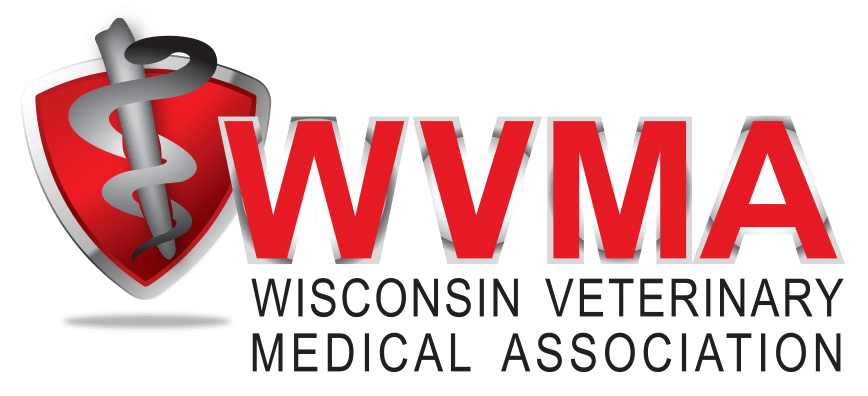By Kim Brown Pokorny, Executive Director, Wisconsin Veterinary Medical Association
WVMA Membership:
On August 5, after 12 years as your executive director, I will walk out of the WVMA office for the last time. I have decided to go back to my agriculture roots, and on August 17, will start as the chief administrative officer for the Wisconsin Farm Bureau Federation.
As I reflect on my time with the WVMA, I want to say thank you for the opportunity to serve you, and I would like to call everyone into action. It is with great pride that the WVMA has evolved and become more responsive and nimbler the past 12 years. We listened to our membership, followed and updated our strategic plan, and have positioned the WVMA for the next 100 years. And we did so with the rest of the country watching.
There are too many advancements and improvements to name them all, but these are some highlights of what we have accomplished together:
• We have embraced the seriousness of opioid addiction issues of society and have worked hard to educate, not regulate, veterinarians and veterinary teams on the issue. We now know the signs and seriousness of someone misusing their animal’s medication and call the local police when needed. In doing so, our profession has been kept out of the prescription drug monitoring program (PDMP) a program that in Wisconsin is not friendly to veterinary medicine. We must continue to self-regulate and continue to be attentive to this issue.
• We changed our membership model to include other individuals aligned with veterinary medicine, so we are no longer operating on an island. It takes all of us to assist in making the veterinary medical industry successful. We are stronger united than we would be divided.
• We have finally recognized and owned the mental health and substance abuse issues we face in the profession. Now that we can talk about it, we can find ways to help support those that need extra support and look for ways to better manage these health challenges.
• We created the Wisconsin Veterinary Medical Foundation (WVMF), the Food Armor Foundation (FAF) and the VetMed PAC (political action committee), as well as the WVMA Association Health Plan, which offers health insurance options for our members and their clinic teams.
• We embraced our role in public health and food safety through what is now the Food Armor Foundation’s Antimicrobial Stewardship Solutions Learning Platform. It is the first program of its kind in the world.
• We changed our continuing education model based on membership feedback. Instead of an annual convention, we now offer monthly continuing education at locations around the state and through technology.
• We developed traditional and non-traditional relationships that are invaluable in addressing challenges and opportunities in veterinary medicine.
• We have strong leadership representation in national veterinary medical associations, whether it is in a specialty association or the American Veterinary Medical Association (AVMA). During the past 12 years, we have had two AVMA presidents.
• We have been very successful at defeating legislation that would harm the practice of veterinary medicine and small business, and have had some wins on policies needed to better address animal welfare, the practice of veterinary medicine, public health and food safety, and small businesses.
• We successfully made Wisconsin history by having the Veterinary Examining Board (VEB) moved to a new state agency to improve responsiveness and accountability to licensees.
• We have 100 percent of veterinary student membership from the University of Wisconsin School of Veterinary Medicine, thanks to Dean Mark Markel.
My challenge to you: This is your organization, and your career is dependent on how successful we are in Wisconsin, the state that holds your license. I encourage you to continue to be engaged at some level. Whether it is serving on a committee or foundation, helping recruit more members, or donating to the PAC – find a role and have a voice in helping move the WVMA forward.
In closing, I want to personally thank my staff team and our contracted service providers – Jordan Lamb and Cari Michel. You have all worked tirelessly for the WVMA and its members. No one sees your commitment, passion and hours worked to serve each member. I also want to thank Drs. Doug Kratt and Katie Mrdutt for being personal mentors, always having time to listen and talk when I needed that non-judgmental shoulder to lean on; Dr. Judy Batker for introducing me to veterinary medical missionary work, experiences that have been life changing and work I am committed to continuing with you; Dr. David Rhoda – a true visionary leader that I have learned so many life lessons from – for the hundreds of hours spent working together to create and present the HACCP for Proper Drug Use Program; Dr. Keith Poulsen, for always making me laugh and assuring me that I was not losing my mind on any given topic; and Dr. Howard Ketover, for checking in on me periodically to ask how things were going, how he could help, and for always making me laugh and smile. Finally, I am grateful for my veterinarian angels, Drs. Tom Howard, Rene Carlson and Ronaldean Pawlisch, looking down on me. To Drs. Howard and Carlson for challenging me to be amazing, and to Dr. Pawlisch for his patience when I followed him around the barn as a young child, and then for his encouragement and support during my time with the WVMA.
In the words of Winnie the Pooh: “How lucky I am to have something that makes saying goodbye so hard.”
All the best,
Kim
